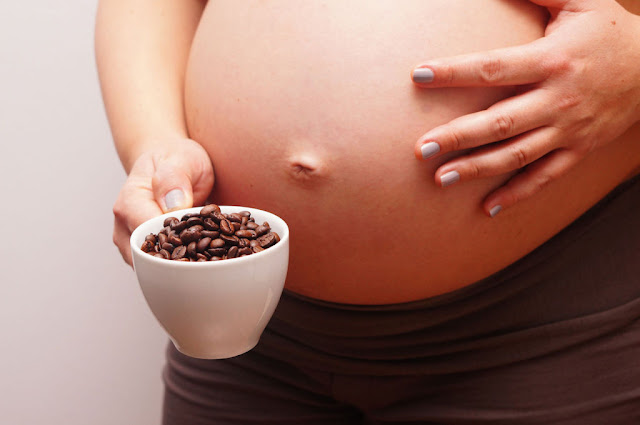Passing Caffeine to Your Little One Inside the Womb?
 |
| Extreme Caffeine Intakes Result in Low-Birth-Weight Infants
Pregnancy brings joy, happiness and ample restrictions along
with it to the expectant mother. All of us wish for the best of things for our
little darlings inside our womb and take utmost care to add chopped almonds and
fruits to our cereal, drink plenty of milk and eat colorful veggies. But, we
should also be taking precautions against foods that must be limited or avoided
during pregnancy. You must avoid seafood high in mercury content, alcohol,
undercooked poultry and finally limit caffeine consumption. Caffeine intake
during pregnancy has been under scrutiny till date and experts have concluded
that it is in the best interest of the mother-to-be to reduce it to 200
milligrams per day- the equivalent of two cups of instant coffee.
What is Caffeine?
Caffeine, the most widely consumed psychoactive drug in the
world, is a bitter substance occurring naturally in more than 60 plants
including coffee beans, tea leaves, cacao pods, etc. Being a stimulant, people
constantly drink caffeine-packed coffee or tea to keep them awake and energized
for longer hours.
Why Restrict Caffeine Consumption?
How Much Caffeine is Present in Different Drinks?
The amount of caffeine present in the most commonly consumed foods/drinks include:
Caffeine Intake During Breastfeeding
Caffeine does gets into breast milk and it is always safe to
limit caffeine intake during breastfeeding. Breastfeeding is mandatory for
babies up to their sixth month for its very many nutrition advantages mentioned
at www.firsteatright.com. Babies of
breastfeeding women who drink more than 2 to 3 cups of coffee a day may have
trouble sleeping or may become fussy easily. It is better to breastfeed healthy
milk than to feed something to our baby just for the sake of feeding.
We don’t know completely about the effects of caffeine
during pregnancy and hence, it is best to limit the amount you consume every
day to not more than 200 mg and if you are breastfeeding, to not more than two
cups of coffee a day.
|


Comments
Post a Comment